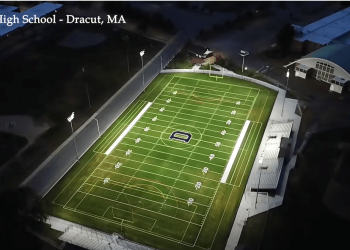MIT Lincoln Laboratory is a research and development (R&D) center, which is federally funded. The laboratory initiated its work on biotechnology in 1995, beginning with several projects on sensors and signal processing for chemical and biological defense systems. After that Lincoln Laboratory, expanded with the work, applied AI (Artificial Intelligence) and synthetic biology technologies to advance the development of new drugs, then also worked for the United States Department of Defense (DoD).
MIT Lincoln Laboratory has recently introduced a new research and development (R&D) division in its lineup. The Biotechnology and Human Systems Division will act on the emerging threats to national security and humanity such as the current pandemic. This new division will basically work on the improvement in human health performance, chemical and biological defense, and resilience in climatic changes, conflicts, and disasters globally.
Eric Evans, Director of Lincoln Laboratory, said that “Lincoln Laboratory believes that research and development in biology, biomedical systems, biological defense, and human systems are very important segments of national and global security.” and also exclaimed that “The new division will concentrate on improving human conditions on many fronts”.
The Lincoln Laboratory’s eight divisions are as follows:
- Advanced Technology
- Communication Systems
- Air, Missile, and Maritime Defense Technology
- Engineering
- Cyber Security and Information Services (IT)
- Homeland Protection and Air Traffic Control
- ISR and Tactical Systems
- Space Systems and Technology
The Biotechnology and Human Systems Division is now added to the list as a new division in the existing eight divisions of Lincoln Laboratory.
The new division- Biotechnology and Human Systems Division consisted of four research groups as follows:
- Humanitarian Assistance and Disaster Relief (HADR) Systems
- Counter Weapons of Mass Destruction Systems
- Biological and Chemical Technologies, and
- Human Health and Performance Systems
Edward Wack, Head of the new division, commented that “It is a historic moment for the Lincoln Laboratory to create a new division.” Wack also explained the need to focus on research and development (R&D) to challenge the growing security threats in the nation as well as the instability caused by pandemics and climate change.
Edward Wack has the vision to draw expertise to campus and Boston Medical’s ecosystem. So, the initial goals of the new division are to build relationships with MIT partners, comprising the Department of Biological Engineering, the Institute for Medical Engineering and Science, and the McGovern Institute for Brain Research. The division is also aiming for Harvard University and local hospitals like Massachusetts General Hospital. The division wants to lead the nation in evolving research of AI (Artificial Intelligence) and biology.
Lincoln Laboratory is combining their capabilities to face these challenges by asking for support from other divisions for better success in the missions they are seeking.





